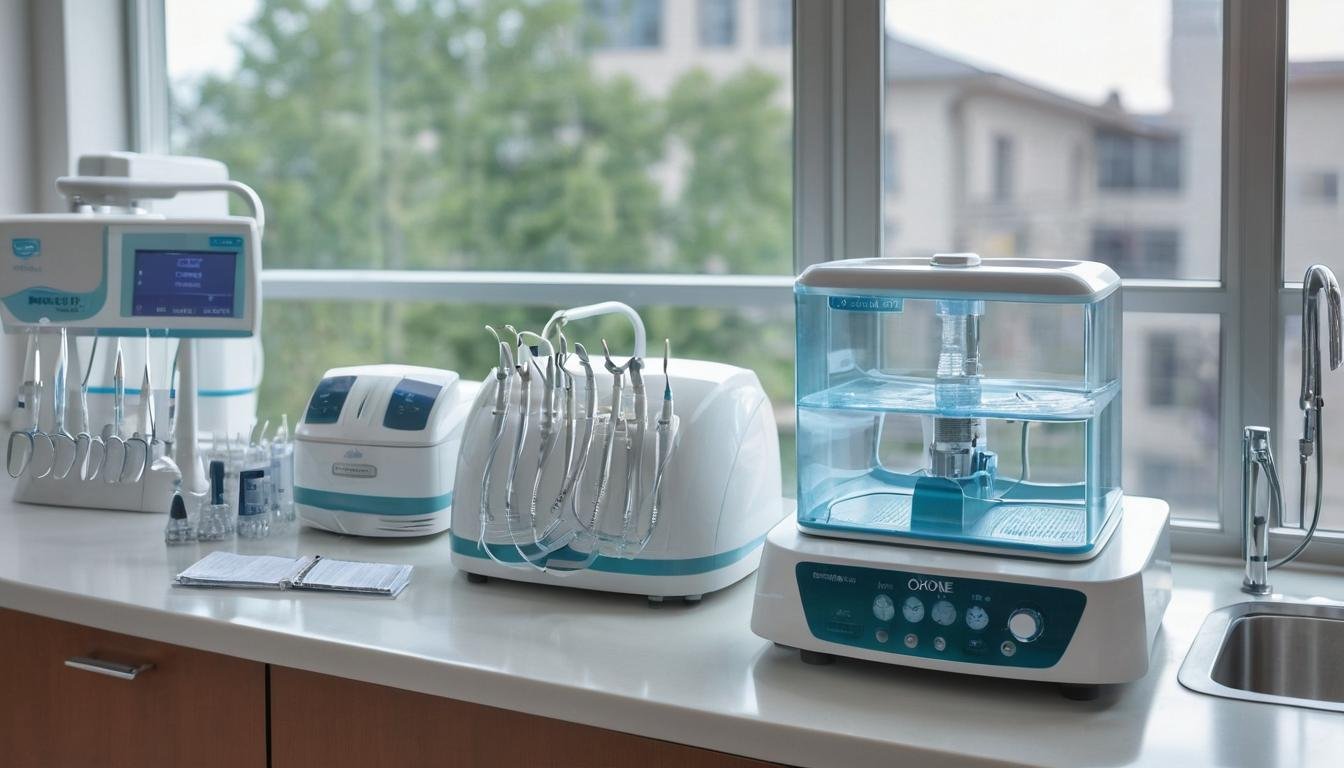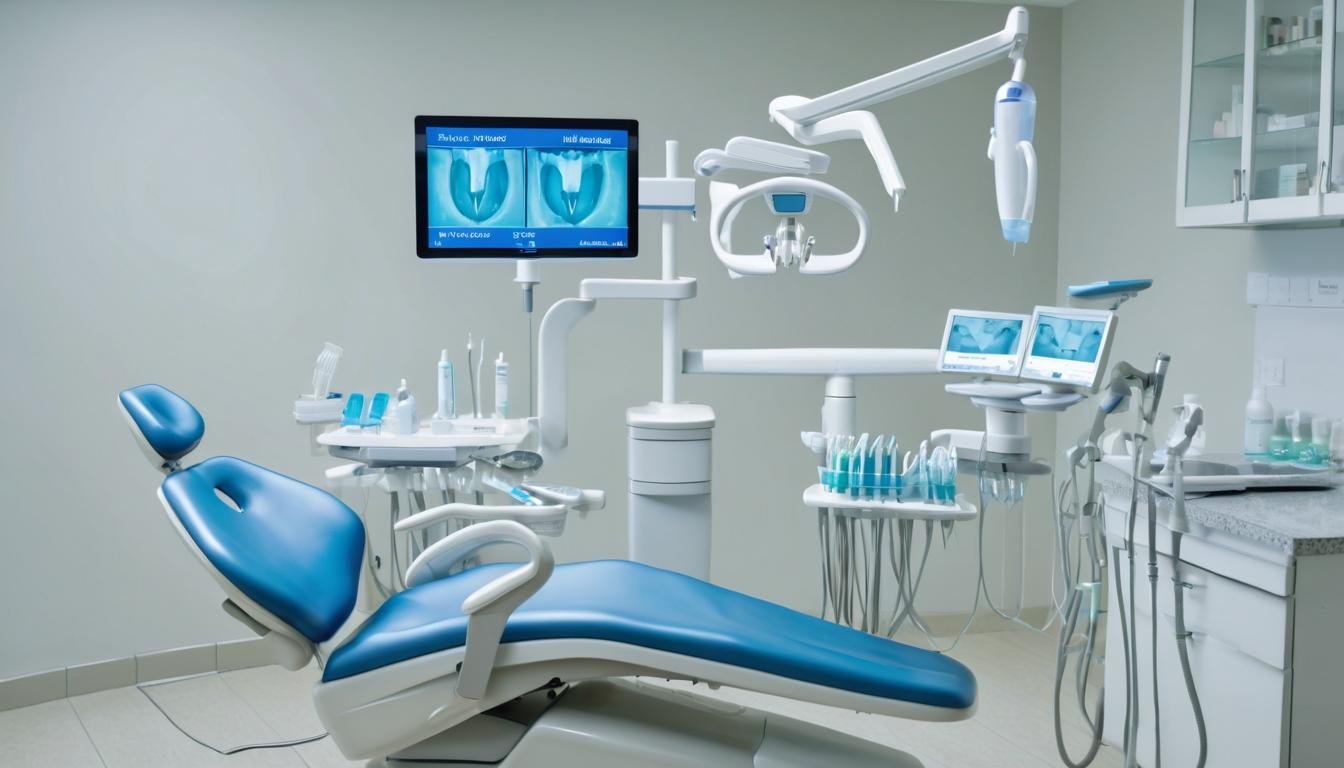
What Are the Advantages of Using Ozone for Dentists?
Are you looking for a way to improve your dental practice while ensuring patient comfort and safety? Dentists like yourself are constantly searching for innovative solutions, which is why there's growing interest in ozone therapy. Known for its powerful disinfectant properties, ozone offers unique advantages that set it apart from traditional methods—chief among them being virtually painless treatments.
Many practitioners have observed how this seemingly simple addition has transformed patient experiences.

Benefits of Ozone Dental Cleaning: Enhancing Your Oral Health
Ozone dental cleaning offers several key benefits, including the painless elimination of tooth decay, stimulation of enamel remineralization, reduced tooth sensitivity, and rapid results without the need for anesthesia, making it especially appealing for individuals with dental anxiety. Additionally, this innovative treatment method effectively sanitizes affected areas in a non-invasive manner and can address minor dental issues with minimal discomfort.

Why Dentists Use Ozone: Exploring Holistic Oral Care Benefits
Dentists use ozone therapy because it acts as a powerful antimicrobial agent, effectively eliminating harmful bacteria, viruses, and fungi in the mouth while promoting a healthier oral environment. This minimally invasive treatment supports natural healing processes, reduces the need for extensive dental work, and helps maintain beneficial bacteria, aligning with holistic practices that emphasize overall health and prevention.

Warning Signs You Need a Root Canal: Recognize the Symptoms
Common signs that you may need a root canal include persistent tooth pain, sensitivity to hot or cold that lingers, discoloration of the tooth, and swelling in the gums. If you're experiencing any of these symptoms, it is crucial to consult with a dentist for an evaluation as they may indicate an infection in the tooth pulp requiring root canal treatment.

Painless Root Canals: A Stress-Free Experience at Your Dentist
For many, just hearing the words "root canal" can conjure images of excruciating pain and discomfort. Yet, modern dental practices have made significant strides so these procedures no longer match those fearful expectations. Today's root canal treatments can be surprisingly painless, thanks to innovative techniques and cutting-edge technology. Now, precision tools like lasers, advanced numbing agents, and even electronic anesthesia contribute to a stress-free experience in the dentist's chair.

How Long Do Crowns Last on Front Teeth? Understanding Lifespan and Care
For anyone who values their smile, knowing how long your dental crowns will last is crucial. Understandably, there’s anxiety around whether these crowns will stand the test of time or give out unexpectedly just when you need them most. Surprisingly though, the answer isn’t straightforward—several factors come into play. Oral hygiene stands at the forefront. Much like ensuring your kitchen stays clean while trying out that complex dish, maintaining a regular brush and floss routine significantly affects how long those crowns will serve you well. But it doesn't stop there; the materials used in your crowns also matter greatly.

What to Expect After a Root Canal: Pain Relief and Aftercare Guide
Once your root canal procedure is finished, it's entirely normal to worry about what's next. The most immediate sensation you'll experience stems from the lasting effects of the anesthetic used during the treatment. Studies show that this numbing effect can linger for 2-4 hours, providing temporary relief but also leaving your lips and gums feeling peculiar. During this period, avoiding hot foods and chewing is crucial to prevent accidental injuries.

Do Root Canals Hurt? Understanding the Pain and Recovery Process
Root canals often carry a fearsome reputation, evoking images of agonizing pain and prolonged recovery. However, these old notions no longer hold true in today's world of advanced dental care. Modern dentistry has made significant strides in reducing discomfort associated with root canals. In fact, studies by the American Association of Endodontists reveal that undergoing a root canal is now comparable in discomfort to having a cavity filled.

What's a Root Canal? Understanding the Dental Procedure and Treatment
Understanding what a root canal involves could provide peace of mind. This procedure targets deep-seated infections causing your discomfort. By addressing this issue at its source, rather than merely masking symptoms, a root canal helps restore long-term dental health. You'll find that while often feared, the reality of undergoing this treatment might not be as daunting as it first seems.

Why Do Narcissists Struggle with Bad Oral Hygiene: Signs and Psychology
It's quite ironic that those most obsessed with their appearance often overlook one key aspect: their dental health and keeping their teeth clean. This paradox is especially true for narcissists who, despite a façade of perfection, frequently struggle with bad oral hygiene. You might wonder why someone so focused on looking good would neglect something so fundamental. Research shows that certain personality traits in narcissists are the culprits. Traits like grandiosity, where they believe they are naturally immune to common health issues, contribute significantly to this neglect.

How To Regrow Bone Loss From Periodontal Disease Naturally
The path to effective natural treatment for periodontal disease begins by diving into the underlying causes and consequences of bone loss due to periodontal disease. While bone loss around teeth cannot be naturally reversed, you can support gum health and potentially prevent further deterioration by maintaining excellent oral hygiene practices, including brushing with fluoride toothpaste and flossing regularly.

How Long Does It Take for Invisalign to Work? The Effective Process Explained
Curious about how long Invisalign takes to work? It's a common question for those seeking a perfect smile while juggling a busy lifestyle. Understanding the timeline for effective results can help you make an informed decision about starting your Invisalign journey. Several factors determine how quickly you'll see changes with Invisalign.

Understanding Open Bite in Orthodontics: Causes, Symptoms, and Treatment
An open bite in orthodontics refers to a type of malocclusion where the upper and lower teeth do not come together properly when the mouth is closed, resulting in a gap between them. This condition can affect proper chewing and speech and may be caused by factors such as thumb sucking, prolonged pacifier use, or dental arch discrepancies, often requiring orthodontic treatment to correct. Learn all about it here.

What Is Periodontal Cleaning? A Comprehensive Guide to the Process and Benefits
Gum sensitivity and bleeding during brushing are more common than many realize, often signaling underlying issues that simple brushing cannot fix. These symptoms can make enjoying a meal difficult and chip away at your self-confidence, but there’s hope beyond regular cleanings. Surprisingly, a significantly percentage of adults over 30 face some form of periodontal disease, and this stat underscores why periodontal cleaning is pivotal for oral health. Unlike a basic cleaning that focuses on surface-level maintenance, periodontal cleaning dives deeper to treat issues beneath the gums.

What is IPR in Orthodontics? A Complete Overview of Techniques and Benefits
In the fast-paced world of orthodontics, staying ahead with innovative techniques isn't just preferred—it's essential. One such technique that has been transforming patient outcomes is Interproximal Reduction (IPR). For many dental professionals, understanding this method can be a game-changer in managing space limitations without resorting to extractions.

When Can I Smoke After Wisdom Teeth Removal? Essential Recovery Timeline
After having your wisdom teeth removed, ensuring a smooth recovery becomes paramount. Recovery isn't just about dealing with immediate discomfort; it's about preventing severe complications that can arise if you don't follow expert guidance closely. As you juggle your daily responsibilities and strive for a quick return to normalcy, knowing when it's safe to smoke—and why it’s crucial to wait—makes all the difference.

How Long Do Crowns Last? Understanding Durability and Care
Have you ever wondered how long your dental crowns will really last? This question often brings concern over unexpected costs and frequent appointments. Dental crowns can endure varying lengths of time based on several factors. On average, metal crowns last between 5 to 15 years due to their durability, while all-ceramic crowns generally last about 5 to 7 years. Understanding these differences is crucial for anyone mindful of their dental health and budget.

How Bad Is Wisdom Teeth Removal Without Anesthesia? Risks and Alternatives Explained
Wisdom teeth removal is one of those dental procedures that many dread, especially when considering the option of going through it without anesthesia. While it’s certainly possible, the reality is far from pleasant due to the intense pain involved. The gums and nerves around impacted wisdom teeth are highly sensitive; hence enduring such a procedure without some form of numbing agent could be excruciatingly painful.
However, certain situations may force this choice.

What To Do Before Wisdom Teeth Removal: Important Preparation Tips
Facing the discomfort of impacted wisdom teeth and worrying about an upcoming removal can understandably cause a mix of anxiety and overwhelm. Knowing what steps to take beforehand can ease some of this stress. By preparing thoroughly, you can minimize post-surgery complications and manage pain more effectively.
One major step is to schedule your surgery well in advance. Oral surgeons often have packed schedules, so early booking allows you flexibility and peace of mind. Having ample time also means you can arrange preoperative consultations to discuss any concerns you might have.

How To Whiten Crowns On Teeth: Top Tips for a Brighter Smile
Feeling self-conscious about your smile because of stained dental crowns? You’re not alone. Many people face this issue as crowns, while durable, are still prone to discoloration. Consuming beverages like coffee or red wine, and even aging can make these artificial teeth lose their luster. Understanding why this happens is your first step towards reclaiming a bright smile.
